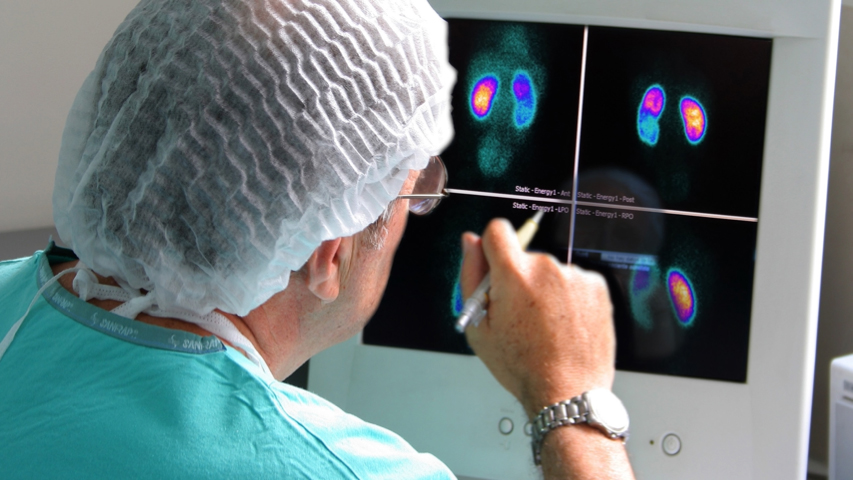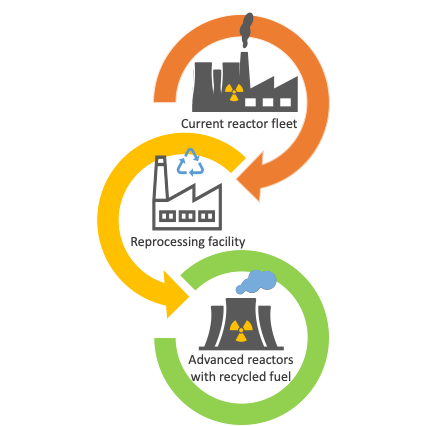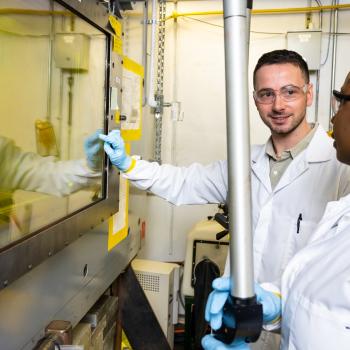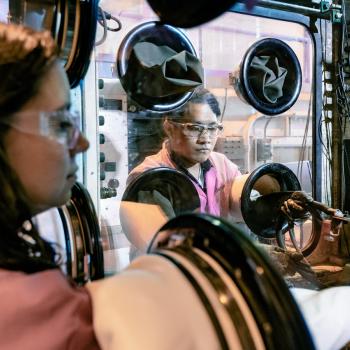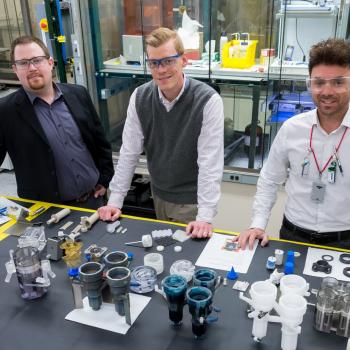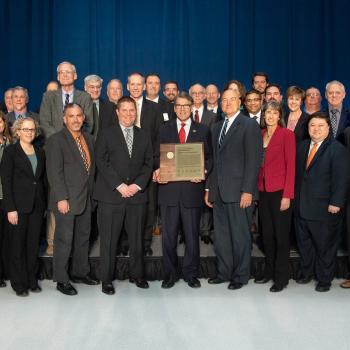Who we are
Our team of scientists and engineers specialize in developing separation methods to recover and purify medical isotopes, and to develop and optimize separations processes for advanced nuclear fuel cycles.
What we do
We study the chemistry of radioactive materials in medical isotope production and the nuclear fuel cycle. Our research is aimed at developing a comprehensive understanding of radiochemical processes via experimental determination and modeling of the underlying kinetics, thermodynamics and mechanisms of the relevant chemistries. A thorough understanding of these parameters enables the development of potentially transformational technologies for irradiated target processing techniques, and optimization and scale-up of production and separation processes integral to advanced nuclear fuel cycles that support sustainable, decarbonized energy production.
Medical Isotopes
Why create medical radioisotopes?
Medical procedures rely on medical isotopes to diagnose and cure cancer or other diseases. A few isotopes occur in nature, but most must be produced in nuclear reactors or particle accelerators. Argonne’s electron linear accelerator (LINAC) is highly effective for safely making particular radioisotopes.
Current research goals:
- Support RD&D of commercially viable medical isotopes production, separation, and purification methodologies for Mo-99, Cu-67, Sc-47, Ac-225.
- Optimize and scale-up developed technologies for commercial implementation.
- Study of radiation damage and effects on materials used in hot cell applications.
- Develop and optimize processes for hot cell operations, including automation of technologies.
Used Nuclear Fuel (UNF) Cycle Work
Why recycle used nuclear fuel?
We can reuse fissionable material recovered from used nuclear fuel to fabricate fuel for use in advanced reactors. This will reduce the quantities of high-level waste (HLW) requiring permanent disposal and reduces the storage period to 300 years instead of 300,000 years. Used nuclear fuel research and development is critical to helping the nation reach its energy production decarbonization goals.
Current research goals:
- Develop advanced separation flowsheets for recycling UNF aimed at removing long-lived isotopes for recycling and transmutation.
- Develop innovative separations equipment engineered to decrease aqueous nuclear reprocessing facility size, waste, and, ultimately, cost.
- Apply new methods such as microfluidic devices to characterize liquid-liquid extraction kinetics to support the development of optimized nuclear fuel cycle separations.
- Study and optimize chemical processes to simplify UNF reprocessing. Design, build, and operate physical and computational systems for small- and large-scale separations of actinides from irradiated fuel or other targets.
